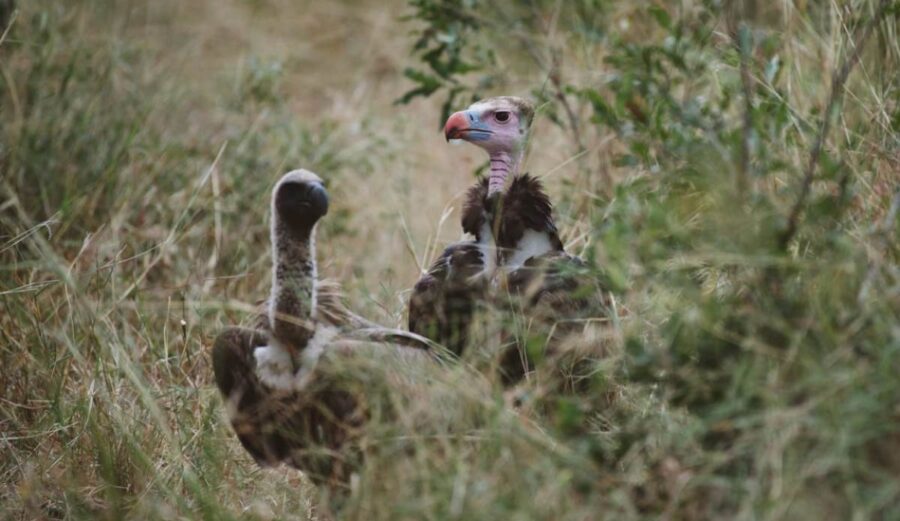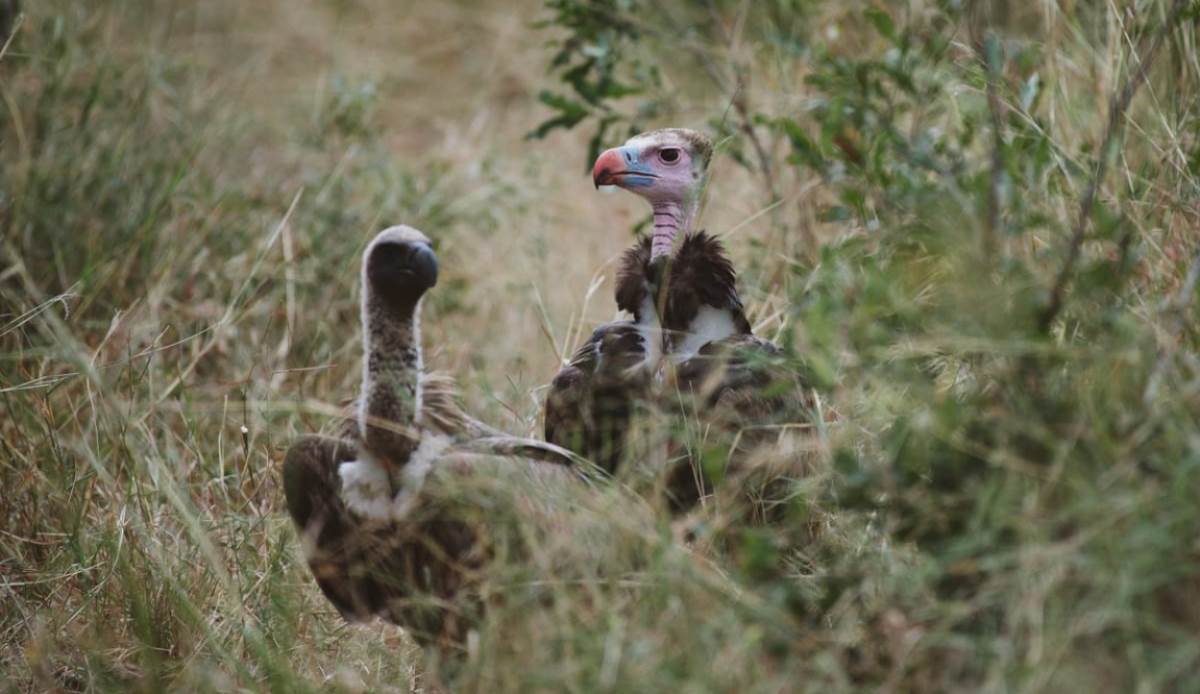
Vultures on Brink of Localised Extinction in KZN, Warn Conservationists
Nature’s most important ‘clean-up crew’ – vultures – are on the brink of localised extinction in KwaZulu-Natal (KZN), South Africa. After recent vulture nest surveys across the province, conservation organisations Ezemvelo KZN Wildlife and Wildlife ACT said they can confirm the localised extinction of breeding White-Headed Vultures; and have found an alarming reduction in nesting […]

Nature’s most important ‘clean-up crew’ – vultures – are on the brink of localised extinction in KwaZulu-Natal (KZN), South Africa.

After recent vulture nest surveys across the province, conservation organisations Ezemvelo KZN Wildlife and Wildlife ACT said they can confirm the localised extinction of breeding White-Headed Vultures; and have found an alarming reduction in nesting pairs of Lappet-Faced Vultures.
Due to their wide-ranging habits vultures are exposed to a wide variety of threats which include poisoning, habitat degradation, population fragmentation, limited food availability, human disturbance, as well as energy infrastructure collisions and electrocutions. One of the biggest impacts in the region is the use of poisons to kill vultures to harvest their body parts for belief-based use and traditional medicines.
Vultures rank among the most vulnerable of Africa’s large birds and of the six true vulture species occurring in South Africa, all are now classified as either Critically Endangered or Endangered.
They play a critical role in protecting humans from the ever-increasing global risk of disease transmission. Without the presence of vultures, carcasses, including livestock, will remain exposed and undecomposed in the environment for weeks. This has a double negative impact – one is an increase in other scavengers, in particular feral domestic dogs in rural community areas, whilst the second is the resultant build-up of extremely harmful diseases and bacteria such as anthrax, botulism and rabies.

In a collaborative partnership between Ezemvelo KZN Wildlife, Wildlife ACT and the Bateleurs, vulture experts took to the skies to survey the key breeding grounds of the White-Backed Vulture, Lappet-faced Vulture and White-Headed Vulture species as part of KZN’s obligation to South Africa’s vulture conservation strategy and long-term commitment towards saving the species.
These focused surveys aim to determine population trends through the recording of active nesting pairs across the breeding range of each species and is but one activity that informs conservation action which is required to save these threatened species. Both Ezemvelo and Wildlife ACT, are active members of the National Vulture Task Force, a body responsible for implementing vulture conservation across South Africa.
Brent Coverdale, Ezemvelo’s Animal Scientist: Mammals and Birds, says:
“In order to ensure that Ezemvelo surveys the appropriate areas, we have generated computer models which predict the most suitable breeding habitat for White-Headed Vultures in the province, and the results of the survey confirm our worst fears, the species has become locally extinct. This means more than ever that the conservation interventions we are implementing need to be upscaled if we are to ensure that the other species do not follow the same fate.”
WATCH short video on protecting vulture species:
Chris Kelly, Co-founder and Director Wildlife ACT says:
“The challenges that our vultures face are becoming ever more tangible and these recent results further highlight the severity of the current crisis we are witnessing. Saturday, 4th September is International Vulture Awareness Day which provides an opportunity to spread awareness and strengthen the existing vulture conservation initiatives undertaken by Wildlife ACT and their partners through Project Vulture and the Zululand Vulture Project.”
Current vulture initiatives being carried out by Project Vulture and partners in KwaZulu Natal include:
- Population Stabilisation and Habitat Protection through monitoring of vultures to accurately identify vulture hotspots, establishing and securing vulture safe zones, the protection and monitoring of nest sites, rapid response to poisoning events, training field operatives on how to handle poisoned birds to ensure they are saved and reducing vulture exposure to lead poisoning by phasing out of lead-based ammunition and the safe disposal of lead-contaminated carcasses.
- Education and Community Conservation through education programs, especially to the youth, about the role vultures play in the ecosystem and the value they provide, researching the drivers and demand for vulture parts in the traditional medicine sector, development of meaningful demand-reduction campaigns which will lead to the reduction of vulture poisoning for their body parts.
- Improved Advocacy through training field operatives on how to handle poisoning (crime) scenes to ensure convictions can occur, working with the provincial and judicial authorities to improve law enforcement and judicial processes, researching the economic value of the species to further advocate for their protection.
Help protect this species
Help to support these critical projects and the organisations that work to protect this species by donating valuable funds towards the work on the ground: http://bit.ly/2LGUXR5
